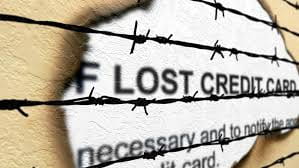I almost never mention my first husband. It was a short marriage that ended decades ago, so it somehow seems like part of a different lifetime.
He and I differed on one very important issue, and I think that is what ultimately drove us apart. We had different financial goals. Or at least a different order in which we wanted to pursue them. All of my life I had two primary goals: earn enough money that I don’t have to be dependent on anyone else, and own my home. When we married, I had finished my Master’s degree and was started on my career as a financial aid professional. I had achieved goal number one. But I was living in a rental apartment. A year after we got married, we moved to Chicago. I continued working as a financial aid advisor (this time at a law school—I found my niche!). He started attending law school. Within a year of our move to Chicago I was looking at condominiums. I still wanted to own a home. He didn’t agree. He claimed he didn’t want to make that kind of commitment to Chicago. And that was the beginning of the end.
Ultimately, we divorced. And a year later I bought a condo in Chicago. A studio was all I could afford, but who needs a bedroom when you have a 27th floor lake view? It was all mine. And I loved it. My home, my mortgage, and my rules. After only three years, I sold that condo at a 25% profit. I moved back to Pennsylvania and started working for Penn State. And as soon as I was able, I bought a townhouse. I’ve bought and sold my home two more times since then, and now I know that I’m in the home where I plan to stay for a very long time. I’ll probably even manage to pay off the mortgage in full.
What I learned over the years is that when the real estate market is strong enough, you don’t have to commit to a home forever unless you want to. It is possible to sell a home after only a few years without taking a loss on it. Real estate is more than just a place to live…it’s an appreciating investment.
My first husband still lives in the suburbs of Chicago with his wife and kids. Ultimately, he did make that kind of commitment to Chicago. We just didn’t have the same goal at the time when it really mattered. Everyone has their own financial goals. And before you too far into a relationship, it’s important to be clear with your partner what your goals are, and hopefully they will match up with each other’s.
Owning a home and being self-supporting were my goals. My current goal is retirement at age 60. Some people have a goal of saving a certain amount of money. Some have a goal of being debt-free. Others have a goal of starting their own business. Your goal is the thing that is important to you. And everyone’s goal will be a bit different. What is important is that you have a goal and you set your sights on working toward it.
What are your financial goals?








